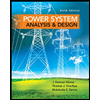Are the following systems linear? Is it memoryless? Is it causal? Explain your answer. Can impulse response and transfer function be found for systems? Find if it can be found, if not, explain why. (Note: The input of the system is “ut)" and the output is "y(t)". "S{t}" is unit impulse, "1(t)" is unit step function. In some cases, impulse response or transfer function is already given In this case, find what is not given if it can be found.) 7. System with transfer function (s+1) 8. System with transfer function G(s) = 9. System with transfer function G(s) = s
Are the following systems linear? Is it memoryless? Is it causal? Explain your answer. Can impulse response and transfer function be found for systems? Find if it can be found, if not, explain why. (Note: The input of the system is “ut)" and the output is "y(t)". "S{t}" is unit impulse, "1(t)" is unit step function. In some cases, impulse response or transfer function is already given In this case, find what is not given if it can be found.) 7. System with transfer function (s+1) 8. System with transfer function G(s) = 9. System with transfer function G(s) = s
Power System Analysis and Design (MindTap Course List)
6th Edition
ISBN:9781305632134
Author:J. Duncan Glover, Thomas Overbye, Mulukutla S. Sarma
Publisher:J. Duncan Glover, Thomas Overbye, Mulukutla S. Sarma
Chapter6: Power Flows
Section: Chapter Questions
Problem 6.22P
Related questions
Question
![If I have to break the question piecemeal, write how I should divide it.
Subject : "Lineer Algebra"(ElectricalEngineering)
Books about the question:
"Chi Tsong Chen, Linear System Theory and Design"
"John S. Bay, Fundamentals of Linear State Space Systems"
NOTE:ACalculatorOrComputerCanBeUsedForNumericalCalculations(MatrixMultiplication,Polynom-
ialRoots, Etc.), ButTheQuestionsCannotBeSolvedByTheComputer.SomeQuestionsMayNotHaveSolut-
ions, ExplainThemWithTheirReasons.
Are the following systems linear? Is it memoryless? Is it causal? Explain your answer.
Can impulse response and transfer function be found for systems?
Find if it can be found, if not, explain why.
(Note: The input of the system is "z(t)" and the output is "y(t)". “8{t)" is unit impulse, "1(t)" is unit step function.
In some cases, impulse response or transfer function is already given In this case, find what is not given if it can be
found.)
7. System with transfer function
G(s) =
8. System with transfer function
G(s) =
9. System with transfer function
G(s) = s
(s+1)
10. System with transfer function
G(s) = 1
11. The system whose state space representation is as follows
y = [1 1]x
12. The system whose state space representation is as follows
y = [-2 2]x + (t + 1)u](/v2/_next/image?url=https%3A%2F%2Fcontent.bartleby.com%2Fqna-images%2Fquestion%2F21743aaf-be04-4291-bc3e-fb4557edb650%2F92a791ec-0964-4886-bca1-8cf54c221752%2Fw8n033s_processed.png&w=3840&q=75)
Transcribed Image Text:If I have to break the question piecemeal, write how I should divide it.
Subject : "Lineer Algebra"(ElectricalEngineering)
Books about the question:
"Chi Tsong Chen, Linear System Theory and Design"
"John S. Bay, Fundamentals of Linear State Space Systems"
NOTE:ACalculatorOrComputerCanBeUsedForNumericalCalculations(MatrixMultiplication,Polynom-
ialRoots, Etc.), ButTheQuestionsCannotBeSolvedByTheComputer.SomeQuestionsMayNotHaveSolut-
ions, ExplainThemWithTheirReasons.
Are the following systems linear? Is it memoryless? Is it causal? Explain your answer.
Can impulse response and transfer function be found for systems?
Find if it can be found, if not, explain why.
(Note: The input of the system is "z(t)" and the output is "y(t)". “8{t)" is unit impulse, "1(t)" is unit step function.
In some cases, impulse response or transfer function is already given In this case, find what is not given if it can be
found.)
7. System with transfer function
G(s) =
8. System with transfer function
G(s) =
9. System with transfer function
G(s) = s
(s+1)
10. System with transfer function
G(s) = 1
11. The system whose state space representation is as follows
y = [1 1]x
12. The system whose state space representation is as follows
y = [-2 2]x + (t + 1)u
Expert Solution
This question has been solved!
Explore an expertly crafted, step-by-step solution for a thorough understanding of key concepts.
Step by step
Solved in 4 steps

Knowledge Booster
Learn more about
Need a deep-dive on the concept behind this application? Look no further. Learn more about this topic, electrical-engineering and related others by exploring similar questions and additional content below.Recommended textbooks for you

Power System Analysis and Design (MindTap Course …
Electrical Engineering
ISBN:
9781305632134
Author:
J. Duncan Glover, Thomas Overbye, Mulukutla S. Sarma
Publisher:
Cengage Learning

Power System Analysis and Design (MindTap Course …
Electrical Engineering
ISBN:
9781305632134
Author:
J. Duncan Glover, Thomas Overbye, Mulukutla S. Sarma
Publisher:
Cengage Learning